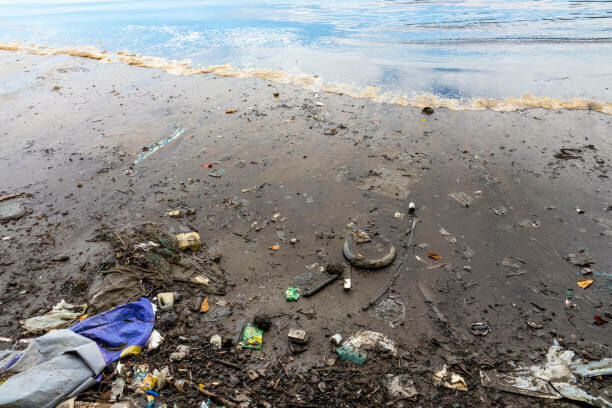Thailand battles marine pollution with 507 tonnes of waste collected in 2020

Marine pollution issues have impinged on Thailand‘s coastal regions, with increasingly alarming statistics emerging, according to updates from the Ministry of Natural Resources and Environment. Throughout last year, there were reports of 22 oil spill events within the Gulf of Thailand, and an astonishing 507 tonnes of various waste gathered from surrounding seas, as noted by deputy government spokeswoman, Traisulee Taisaranakul.
Traisulee also indicated that these insights are derived from the ministry’s comprehensive assessment of the environmental condition in the country’s length of 24 shoreline provinces in the previous year. The sea water quality saw a marginal increase in marine pollution due to spills of oil and the indiscriminate dumping of waste predominantly originating from industrial facilities.
The report categorised the purity of seawater—concluding that just 7% of the sample tested was indeed in a very clean state; water cleanliness was rated at 57%, moderate cleanliness at 30%, with the remaining 6% identified as polluted.
The crisis of oil leaks noted in the year prior primarily struck in the region covering Rayong and its adjacent Chon Buri—a hub for abundant industrial plants and bustling locations for tourism-related activities.
Globally, the issue of marine littering has seen an increase in attention, evidenced by the Thai Ministry’s disclosure of a shocking 507 tonnes of ocean detritus, including but not limited to discarded plastic bottles and Styrofoam, retrieved from national waters last year. Distressingly, 168 out of the 659 marine creatures found beached had lost their lives due to impacts associated with plastics like ingestion or entanglement in floating trash.
Coastal erosion has also been a significant concern for Thailand’s environmental stability. Out of the lengthy 3,151 kilometres of the country’s coastline, 823 kilometres suffered from erosion. However, Traisulee reassured that restoration attempts have mitigated some of the loss, with 753 kilometres of the eroded coastline now repaired through efforts such as the construction of barriers and sand fences.
On a vaguely positive note, the country’s coral reef condition saw a slight upturn compared to the previous year. The nation plays host to 149,182 rai of coral reefs, with 53% assessed as being advantageous, 22% moderately beneficial, and the rest seen to be only slightly beneficial.
The country’s seagrass population increased by 4% compared to the preceding year, with a quarter of the immense 103,580 rai of seagrass being categorised as in a good state, 36% in a moderately good state and the remainder in a slightly good state, reported Bangkok Post.
Despite the upswing in certain categories, it is imperative to note the state of the country’s beach forests, which currently span only 47,149 rai within 18 provinces. These small chunks of forests persist primarily down to limited conservation efforts, and the heavy footprint of tourism.
Lastly, discussing the state of marine wildlife, Traisulee pointed out the presence of 273 dugongs and 2,310 dolphins and whales within the Thai seas. Steps towards protecting the native marine species were seen, with reports of sea turtles laying eggs in 604 nests.
In related news, due to waste mismanagement, Asian countries like Thailand are among the top ocean plastic polluters, according to a new graphic. Louis Lugas Wicaksono’s graphic is based on Lourens JJ Meijer’s 2021 research paper. To read more click HERE.
Latest Thailand News
Follow The Thaiger on Google News:


























